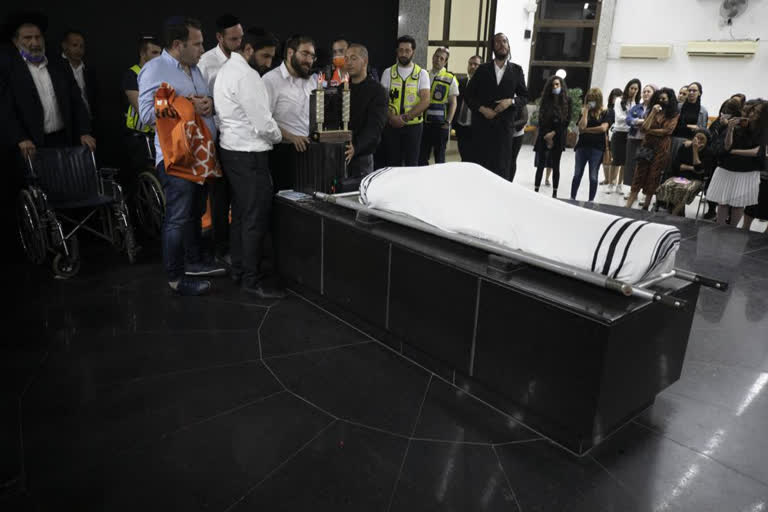Jerusalem:Officials came under growing scrutiny Sunday for ignoring warnings about safety lapses at one of Israel’s most visited holy sites, as the country mourned 45 ultra-Orthodox Jews killed in a stampede at a festival there.
The disaster at Mount Meron also heated up the debate over the role of the ultra-Orthodox minority in Israel and the refusal of some of its leaders to acknowledge the authority of the state. The festival had drawn some 100,000 people, most of them ultra-Orthodox Jews, after powerful ultra-Orthodox politicians reportedly pressured Prime Minister Benjamin Netanyahu and others to lift attendance restrictions.
On Sunday, a group of retired police commissioners called on the prime minister to launch an independent commission with wide-ranging powers to investigate. The body would have the authority to probe senior politicians and decision-makers, going beyond a Justice Ministry inquiry now underway that is looking into possible misconduct by police officers at the site.
The increasingly acrimonious blame game comes during a political power struggle between Netanyahu and former allies-turned-foes bent on toppling him. After inconclusive elections in March, Netanyahu's chances of forming a ruling coalition and staying in power seem to be waning. His ultra-Orthodox political allies would feature prominently in any Netanyahu-led government.
The stampede, the deadliest civil disaster in Israel's history, took place early Friday during a festival called Lag BaOmer on Mount Meron in northern Israel. The site is believed to be the burial place of prominent second century sage Rabbi Shimon Bar Yochai. The annual springtime celebrations are marked by the lighting of large bonfires, singing and dancing.
Read:Spokesperson: People shot at Wisconsin casino
This year's festivities went ahead despite national coronavirus restrictions that prevent assemblies of more than 500 people outdoors, and longstanding criticism by police and health authorities in recent years about the safety of mass assemblies at the site.
A common complaint heard in the aftermath of the stampede was that no single authority was in charge of managing the festival safety.
The site is ostensibly managed by the Religious Services Ministry’s National Center for Holy Places.
But Eli Ben Dahan, a former deputy religious services minister, said in an interview with Kan radio “there’s no one person about whom it can be said that they run the event, that everything falls on their shoulders.” Mount Meron is divided up between an assortment of religious trusts, he explained, and called for it to be brought under a single administrative authority.
Read:At least 30 Afghan soldiers missing after Taliban attack in Ghazni
“I don’t think that a place in the state of Israel should be extraterritorial, that the state doesn’t have any control over it, doesn’t manage it, isn’t responsible for it," he said.
